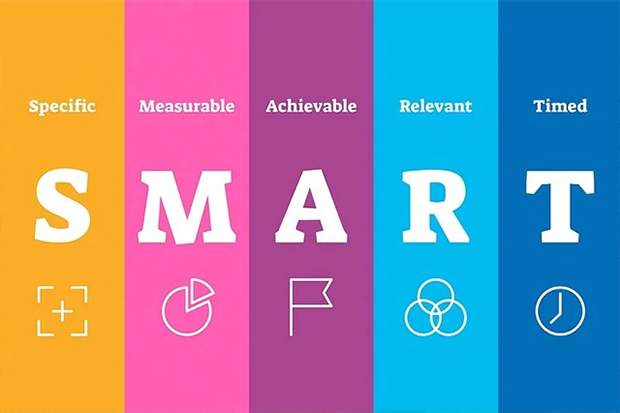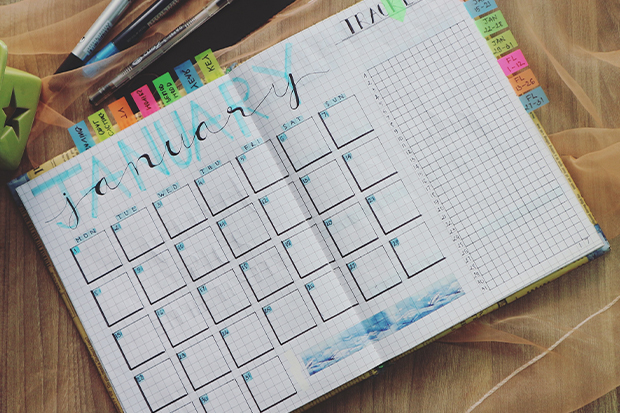Setting & Achieving Goals

What is Goal Setting?
Goal setting can look different depending on an individual’s lifestyle, values and definition of success. Your goals are unique to you and don’t need to look like anyone else’s.
The classic goal-setting definition boils down to the process of identifying something you want to accomplish and establishing measurable objectives and timeframes to help you achieve it. Goal setting can help you in any area of your life. When you learn how to set goals in one area of your life, it becomes easier to set them in other areas.
Setting progressive goals that allow small wins helps you move on to larger achievements. These small goals lead to progress, which gives you momentum, and gives you motivation to follow through.
Why is Goal Setting Important?
Goal setting is the fundamental key to success. Whether it’s losing 20 pounds, living pain-free, making more money, traveling more, having more financial freedom, looking good, learning a new skill or falling in love, setting goals lets us create our future. It also helps us grow and expand, pushing ourselves to transform in ways that we never imagined. In order to feel fulfilled, we need to know and feel like we’re working to achieve something. Progressing is key to living your best life and setting goals gets us there.
Effective goal setting lets you measure progress, overcome hurdles, push through procrastination, and visualize your dreams. If you don’t know what you want to accomplish, you can’t create a plan to get there.
Setting goals is the vehicle that will drive you to your desired destination.
Goal setting also keeps you accountable. Whether you’re learning how to set goals at work or in your personal life, telling others about your goals makes you more likely to establish the patterns that will accomplish them.
Here is my proven method of goal setting to ensure you achieve them. You’ll learn what makes a compelling goal as well as the steps you need to take to see them through.
How to Set Goals

1. Perform A Brainstorming Session
Give yourself five minutes to brainstorm a list of anything you’d like to achieve, create, do, have, give and/or experience in the next 5 years. Write as many items down as fast as you can in this time. Use the Bench Method to do this. Picture yourself in retirement, thinking back on your life from a bench in the park, overlooking the ocean, or in your neighborhood. What accomplishments will you be most proud of? What will you most regret? These are your most important answers to the question, “Why is goal setting important?”

2. Refine Your Goals
Setting deadlines is crucial to goal setting. Go back through your list and write one, six, 1 year, 2, 3, 4 and 5 years next to each goal to indicate how long it will take to achieve them. Some goals take a lifetime to achieve, but make sure you are pushing yourself toward both professional and personal growth. If you don’t know how long a goal will take – like finding a the love of your life, losing 50 pounds, or getting off of your medication – write down how long you would like it to take. Goals are like magnets. They’ll attract the things that make them come true.

3. Connect Your Goals To Your Purpose
Go over what you’ve written. Choose your top four one-year goals. These are goals that excite you because they are most connected to your purpose in life Write a paragraph for each goal explaining why you will achieve this goal within the next 12 months. This isn’t a to-do list. This is creating a vision for your life.When you have a powerful reason “why,” you’ll more easily discover the “how.”

4. Create Smart Goals
Now it’s time to take those big goals and break them down into smaller SMART goals. Are your goals specific? Measurable? Achievable? Realistic? Do they have a specific timeframe? These are the components to SMART goals. Breaking down your goals in this way sets a strong purpose and intention, making them more concrete and easier to achieve. You’ll also be able to better track your progress and celebrate your successes that are two key ways most people don’t talk about to achieving goals.
How to Achieve Your Goals

1. Visualize Your Goals
Where focus goes, energy flows. Therefore it is critical to focus on your goals. Visualization is one of the most powerful ways to do this. When you visualize your goals on a daily basis as if you’ve already achieved them, you align your purpose and values with your actions. Everyone of my celebrity clients or professional athletes use this skill of visualization. I also recommend that people use vision boards which helps you to train your brain consciously and subconsciously to see what you want. You can even tape images of your goals on the mirror in your bathroom or pin them to the wall next to your computer. If your goals involve eating healthy and losing weight, put your goal on the front of your refrigerator and/or on the mirror in your bathroom.

2. Keep Yourself Accountable

3. Track Your Progress

